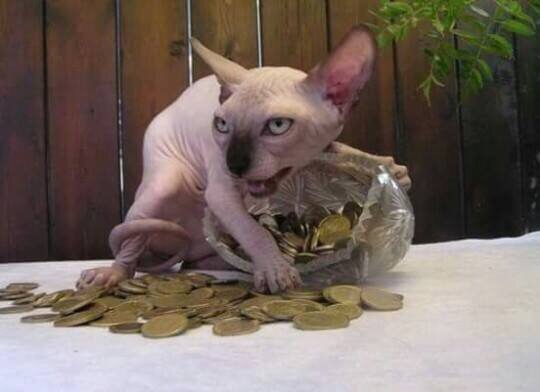When the MeToo movement took off across the globe in 2017, it changed how we think about artists and their art.
As victims of sexual harassment and assault spoke out, the public became more aware of the behaviour of well-known people, including successful artists. Audiences immediately began to view these artists’ work through the lens of their actions.
As a result, many of our favourite books, songs and art works became irrevocably tainted by the transgressions of their creators.
Admiring the work of Pablo Picasso — the cubist artist who burned his partner Françoise Gilot’s face with a cigarette (and painted it) — or Alfred Hitchcock — the film director who tried to destroy actress Tippi Hedren’s career when she rebuffed his advances — became a less straightforward proposition.
“In the aftermath [of MeToo], people were left wondering what to do about their heroes,” US critic Claire Dederer writes in her new book, Monsters: A Fan’s Dilemma.
People love to see things and the world as black and white. In fairytales, the good people were always beautiful and flawless, and the bad people were always ugly and hateful. (Unless the story was deliberately about those stereotypes.)
And we still expect the world to be like that.
But it’s not. People aren’t even just good or bad. And even those “bad” people can do amazing things. Werner von Braun, a full-blown nazi, got us to the moon. Serial killers on death row have made scientific discoveries. Some eras and genres of music are barely anything else than drug trips where tons of people were hurt.
That’s just how it is. That book, song, movie you’re enjoying, wasn’t written by a flawless ethereal being. In fact, it probably wasn’t, because people with creative minds are more likely to push societal boundaries instead of just being happy in 9-5 jobs.
You want to call out and cancel every artist that’s not the ideal person, enjoy your white walls for entertainment.
Besides, before cancelling someone, you know how it works - throw the first stone…
And also, whatever gets exposed is only the tip of the iceberg. Entire industries, creative or not, are built on suffering of some kind.
If you decide to boycott someone or something, that’s always your choice, but don’t expect me to follow you, or be mad at me when I don’t. Otherwise I’m gonna ask you what you plan to do with that phone built by child slaves.
We should not make heroes. People are falible, don’t idolize them. You can of course still admire their work.
This is harder with artists though. They put more of themselves in their work and once you know an artist was an absolute cunt you can start seeing things in their art that you didn’t before or experiencing it differently and don’t like it anymore.
But if you still enjoy their work I think that’s fine too. Especially if they are dead and can’t profit from it, if they would profit from it I, personally, just pirate it and that keeps my conscience clean.
But if you still enjoy their work I think that’s fine too. Especially if they are dead and can’t profit from it, if they would profit from it I, personally, just pirate it and that keeps my conscience clean.
This is pretty close to something I’ve been saying for a while now in regards to the whole ActivisionBlizzard sexual misconduct thing any time someone brings up separating the art from the artist. You can easily do that with a book or a movie simply by going to a local library. And for many games through piracy like you said.
For a live service game like World of Warcraft there is no real way to experience it without supporting them, either monetarily or in their precious monthly active users metric they switched to after they stopped reporting on subscriber counts. In that kind of case the only real option is to walk away.
In that kind of case the only real option is to walk away.
I agree. I sucks sometimes, but it can also be a push to try new things or, specially if more people jump off, to recreate the good things of the old place in a new one (ehem…)
I like your points. The only part I think that could still be debated is definition of an artist. Actors and singers are considered by many to be artists (though of course the definition of artist is subjective), and we are far more likely to recognize them in their art than we probably are to recognize, say, a painter or sculptor, thus making it harder not to idolize them as artists.
But I still agree with you.
Now this is a good debate.
Personally, my view is that it is inappropriate to hold people from past generations to modern value systems, as the rational basis of those modern values did not exist yet.
We only expect human rights because we have ancestors that fought for them. Before the conflicts became commonplace, part of being a “good” person was to behave differently. We should not think that we are somehow special and would behave any differently than our ancestors, had we been nurtured in that time, surrounded by only those antiquated ideas.
This is why Genghis Khan and Hitler should be seen in a different light. They were both butchers, but the Khan was a butcher in a time of butchers. Where Hitler did it in a time of industrialization and the rise of globalization. One of the men is a respected historical figure of great relevance, the other is despised as one of the most evil men in history. Not for different actions, though, but for doing the same actions in different contexts, in worlds of different expectations.






